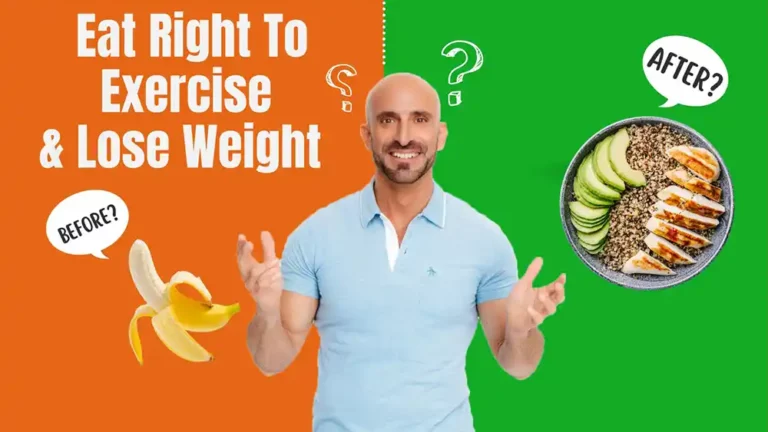
One thing you should know about weight loss: it does not and cannot occur unless you are in a calorie deficit, meaning you are burning more calories than you are putting in your body. Contrary to popular belief, though, burning tons of calories through exercise to “beat out” how much you are eating is not a practical way to lose weight. Research shows that calorie control, not tons of exercise, is the most effective way to drive weight loss. This makes sense because you have little control over how many calories you burn and it’s nearly impossible to count the number of calories you burn.
However, you have a great amount of control over when, how much and what you eat. Therefore, this should be the focus of your weight loss. However, what makes this so difficult? One word. Hunger. Calorie control cannot be maintained without hunger control and this is where people get stuck in their weight loss. Our hunger is driven by three domains in your brain: Physiological Hunger, Hedonic (Emotional) Hunger, Decision-Driven Hunger. When you can conquer all of these domains, you can be in control of your weight loss. So, let’s go over how these domains of hunger work and how you can rewire your brain to control them.
More times than I can count, I’ve had clients come to me in my private practice insisting they are “food addicts.” First of all, there is no such thing. We need food to nourish our bodies and the illusion of being “addicted“ is just another way of saying they need help controlling their hunger. What’s more, when I do my assessment on their current eating habits, they are nearly always not eating well during the day. They are skipping meals, not eating enough protein, not eating enough carbohydrates or just exercising way too much. There’s no addiction here. There is simply a lack of eating structure and principles to follow, but more on that later. For now, let’s talk about the best ways to tackle our different hunger domains.
FIrst, there’s physiological hunger. This is simply the phenomenon of our bodies telling us we haven’t had food in a while and need some fuel, so it starts sending out those hunger cues. In order to manage physiological hunger, we must first manage our hunger cues and the best way to do that is to follow my eating principles:
- Eat breakfast every morning
- Do not skip meals
- Combine all of your macronutrients (carbohydrates, protein and fat) in your meals
- Stay hydrated
- De-stress
- Get at least 7-8 hours of sleep every night
By following these principles, you will be able to control the hormone that is in charge of sending you hunger cues: ghrelin. Controlling ghrelin is the key to preventing binges and not feeling deprived during your weight loss journey. Unfortunately, though, most people do not follow these principles which sends their hunger hormones out of wack. One important way to control ghrelin is to not ignore it. Listen to your hunger cues and find a consistent way to give your body what it needs. If you are one of those people who eat at your desk while working, eat hastily between meetings without really enjoying your food or don’t eat at all for extended periods of time, you are not listening to your hunger cues and setting your ghrelin up to go crazy in the worst way. My advice is to book time to eat just like you would any other scheduling obligation. This allows you to really sit and enjoy your food which not only does wonders for you mentally and your relationship with food, but forges a stronger connection between your brain and stomach to send the message that you are nourished and satisfied which helps you control your hunger throughout the day. This is important because, once your ghrelin gets out of control, it travels to your hypothalamus where it activates your hedonic eating domain and this is where the dreaded emotional eating comes into play.
Hedonic, or emotional, eating is typically the trickiest domain to conquer because it’s so difficult to predict when it’s going to trigger. When we are feeling stressed or upset, our body begins to crave the hormone dopamine, which allows us to feel pleasure and happiness. Since food (especially sweets and comfort foods) tend to give us these feelings and our brains know this, our brains become wired to tell us to reach for food when we are feeling emotional. As mentioned, if you control your physiological hunger, that is one big way to prevent emotional eating. However, as we know, things happen and many times you are one bad meeting, 12-hour work day or stressful deadline away from an evening buffet in your fridge. The longer you ignore these hedonic eating cues, the weaker the signals get. But how can you make this happen? I have a mantra to help when that emotional eating starts to creep in outside of your usual eating times: distance, delay, distract. Distance yourself from the food you’re thinking of having which delays the onset of excess eating. Then delay. Take 10 deep breaths and ask yourself if you really need to eat that food. If you decide you still have that need, then go ahead and eat. If not, however, then distract. Distract yourself with another activity you enjoy such as listening to music, reading a book, searching for your next vacation, taking a relaxing bubble bath or going for a walk. Otherwise, that thought will linger in your head which is destructive to your mental health and morale. For many people, the easiest thing to do is to remove those trigger foods from your home entirely.
Last, we have decision-driven hunger which, as it sounds, is when you make a conscious decision to eat such as out of boredom or because you decide you just want that chocolate chip cookie right now. Once you have the nutrition knowledge of what it takes to lose weight and a good relationship with food, decision-driven hunger doesn’t tend to sabotage your weight loss. The best way to get this knowledge is to meet with a registered dietitian to coach you on best practices. One phenomenal example of this happening was with my client Wendy, who lost 40 pounds during lockdown when she managed to master her three domains of hunger while working with me.
The bottom line? Rewiring your brain is not something that can happen overnight. It takes time. In my experience, it can take a minimum of three months to see progress. This is why most weight loss solutions you see marketed that are a “quick fix” may give you results in the short term, but you’ll end up gaining this weight back because you still haven’t re-learned how to eat properly and control your hunger. Once you can follow these eating principles, improve your relationship with food and control your hunger hormones by mastering these domains, you can start to see significant, sustainable weight loss.
If you want to learn how to do exactly that, book some time with me to learn more about my virtual program.





